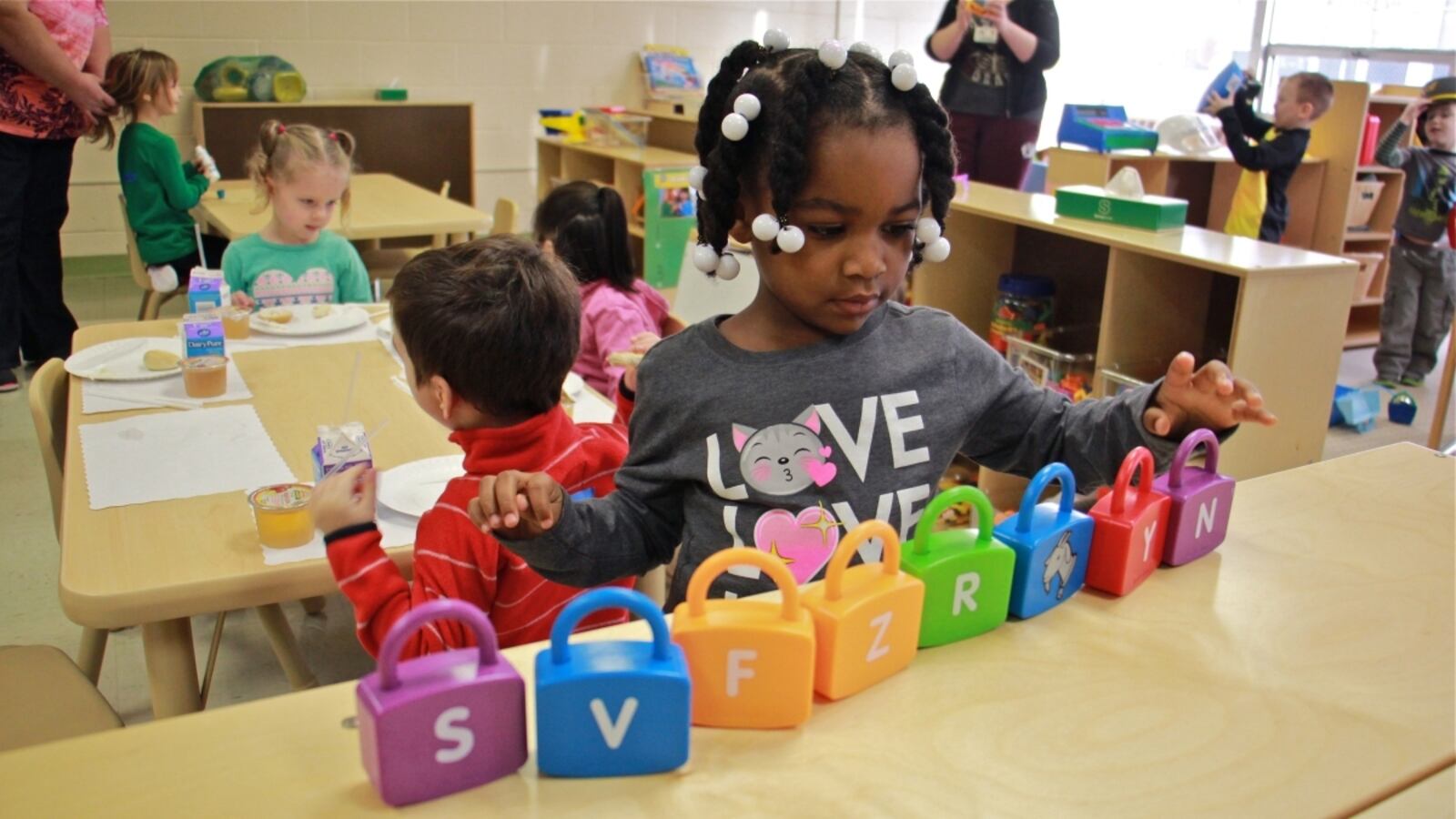This article was originally published in The Notebook. In August 2020, The Notebook became Chalkbeat Philadelphia.
A month after it began, Philadelphia’s pre-K program still has 500 unfilled seats, but officials and advocates praise the city’s progress and say the open slots don’t indicate soft demand.
About 1,500 of the 2,000 slots made available through the city’s sweetened beverage tax have been claimed, according to the Mayor’s Office of Education. Six hundred additional children have applied to the PHLpreK program, but have yet to enroll at a specific child care center.
Many of those families are stuck on waiting lists or still shopping around. Right now, the city is trying to readjust its distribution of new pre-K seats so that centers with backlogs can take on more students.
"There are a lot of kids on waiting lists at different providers," said Mary Strasser, acting director for the city’s pre-K initiative. "That’s part of our rightsizing process. And we’re making those adjustments today and early next week."
The coexistence of empty seats and overflow may be difficult to reconcile, but research suggests that the tricky economics of pre-K make it tough to match supply and demand. Families tend to prefer sites that are close to home or work and are unlikely to stray even a short distance to higher-quality centers.
Therefore, government officials have to be precise when choosing where to add new seats. After testing the waters in the first phase of the PHLpreK rollout, officials say they’re ready to recalibrate based on early enrollment figures.


